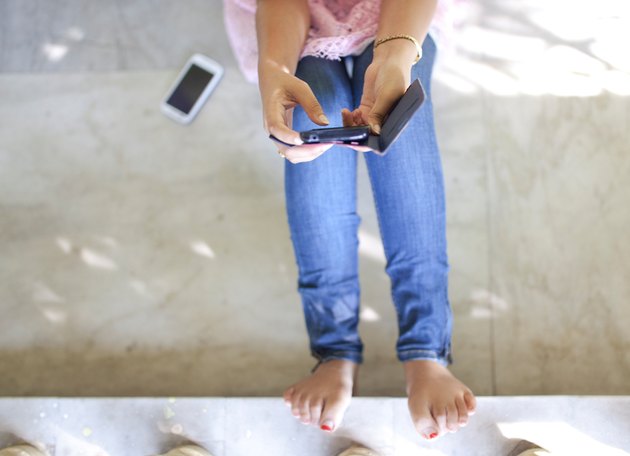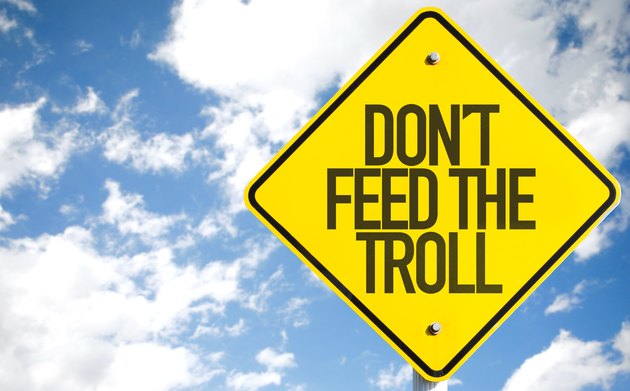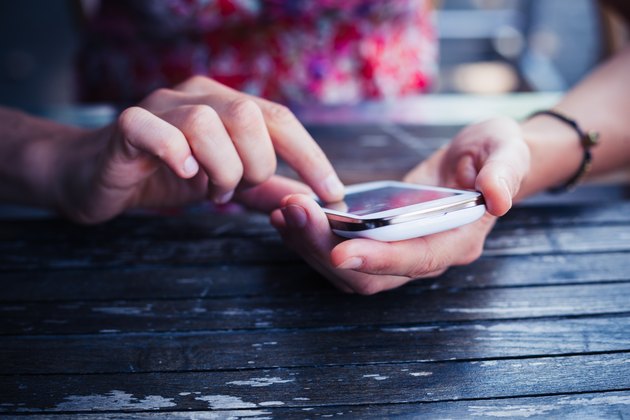Nag. Self-important know-it-all. Scrub.

Advertisements
That’s just three of the names Sarah Spain, ESPN columnist and reporter, has been called on Twitter. The sports veteran has been the target of such mean-spirited messages since she joined the social-networking site back in 2008, and they’ve only worsened with time.
“Now that I’m more established, I get death threats,” Spain told LIVESTRONG.COM at the espnW Women + Sports Summit.
To confront the chronic problem of social-media bullying, in April, Spain and fellow sports anchor Julie DiCaro launched an online PSA called #MoreThanMean. In the four-minute video, the pair sit in a room and have male volunteers — strangers — look directly at them and read aloud malicious messages the women had received.

While the men in the room hadn’t authored the comments, the goal was to show the opposite sex, in real time, how online harassment affects women. And it worked: The men’s discomfort was palpable, and social media exploded with commentary on an “incredible” look at what’s considered an “everyday” experience for many women.
Adults Also ExperienceOnline Bullying
Spain and DiCaro’s stories may seem extreme, but 65 percent of men and women ages 18 to 29 have personally experienced some form of online bullying. That’s according to the results of a study conducted by the Pew Research Center in which victims cited name-calling, humiliation, physical threats, sexual harassment and stalking.
And a survey by Glamour found that 34 percent of women post on social media less frequently and 19 percent feel more insecure in real life as a result of online harassment.
“Being harassed on social media makes people feel profoundly unsafe and vulnerable because of the shame it inflicts,” says Paul Hokemeyer, Ph.D., a New York City-based therapist.

Internet HarassmentIs Permanent and Public
“Online shaming is meant to challenge a person’s value as a human being on a public platform where little to no remediation is possible. This can make victims feel powerless,” Hokemeyer says.
He adds, “At core, bullies are narcissists who are highly sensitive to any real or imagined threat to their ego, so they lash out to combat that feeling.” Indeed, research shows that cyberbullies tend to lack self-control and empathy and feel superior to others.
What makes online harassment especially toxic is that unlike conventional bullying, which are often contained episodes, the internet is a 24/7 stage where our careers, love lives and friendships unfold and intermingle and photos exist forever.

What to Do If You’re Being Harassed Online1. Remember: It’snot about you.
Try not to absorb negativity by reminding yourself that online bullying is a reflection of the aggressor, not the victim.
Advertisements
“Research shows that thoughts generate emotions, which in turn influences behaviors,” says Hokemeyer. “So when you first read a nasty comment, accept that you’re going to have a strong emotional reaction that makes you feel unsafe and vulnerable.”
Then come up with a calming mantra. “An effective one is, ‘This is about them, not me,’” he says. “Repeat it until the emotional reaction subsides — and it will. In doing so, you’ll gain a sense of control and feel empowered.”

2. Don’t react.
Bullies also thrive on reactions from their victims, so do your best not to respond. One study conducted by Stanford and Cornell universities found that online bullies become more antisocial when faced with backlash for their behavior.
It makes sense: This person (often a stranger) is not interested in positive discourse or conflict resolution. The bully’s simple goal is to make you feel hurt, angry or unsafe. With that in mind, a reaction might egg him on.
Spain sometimes blocks her harassers, but she admits that “it’s frustrating when people say, ‘Just ignore it. Because then we’re asking [the victim] to internalize everything with no outlet, and that’s unfair.”
3. Back up, thenblock.
If you decide to block harassers, first document the evidence. Take time-stamped screenshots of their messages, including witnesses (for example, anyone who reacted with likes, emojis or comments).
It’s especially important to capture these details if your harasser quickly shuts down his account or bothers you from multiple accounts under different names. This type of evidence can be helpful if you ever need to take legal action against the harasser.
You can also privatize your social-media accounts. (Here’s how to do that on Facebook, Instagram, Twitter and Tumblr.) And turn off your GPS tracking in the rare event that a cyberbully wants to bother you offline.

4. Take a break.
Spain also suggests having a friend scan your notifications to prevent you from reading anything upsetting or, if possible, taking periodic breaks from social media.
“Sometimes I find myself in a terrible mood and ask myself, ‘What changed my mood?’ Then I’ll realize that I’ve been arguing with people online,” she says. “Why did I let this person ruin my day? It’s important to find balance between how much social media is benefitting or hurting you.”
The good news is that there’s been a collective effort to stop online bullying. According to ThinkProgress, roughly 20 states address cyberbullying in their anti-bullying laws.
In addition, Twitter recently introduced a feature that blocks notifications containing keywords commonly used in hate speech. While a Twitter spokesperson told the Wall Street Journal that the feature is “not going to solve the problem of abuse on Twitter,” it’s a step in the right direction.

Advertisements
What Do YOU Think?
Have you been the victim of online bullying? How did you handle the situation? What advice do you have for others who have been victims? Share your experiences and suggestions in the comments.





Comments